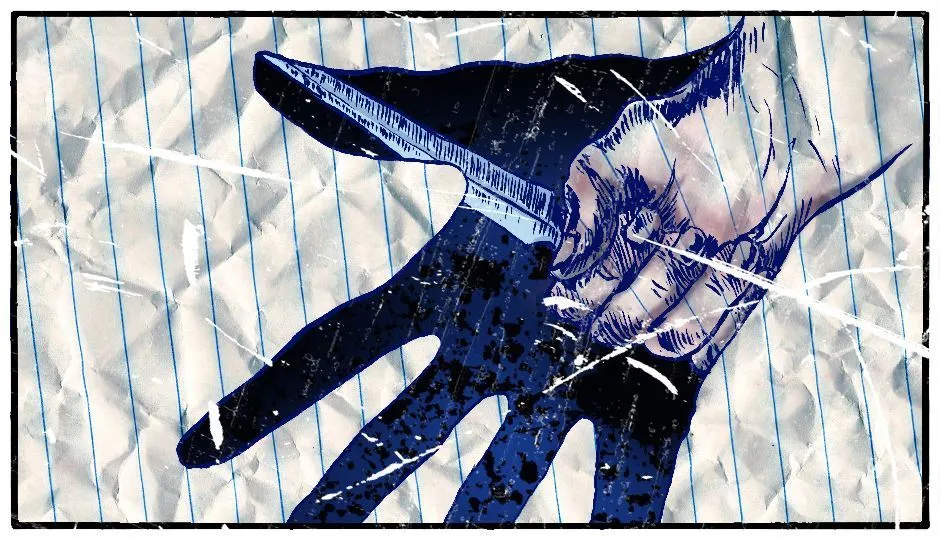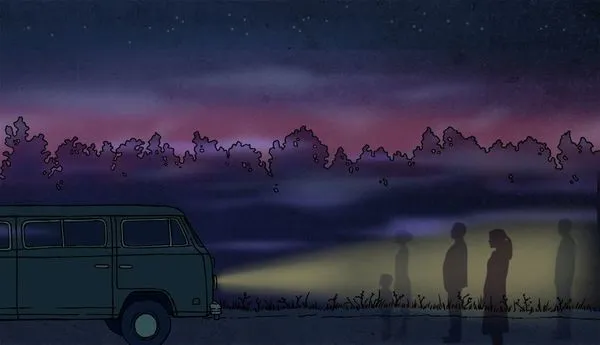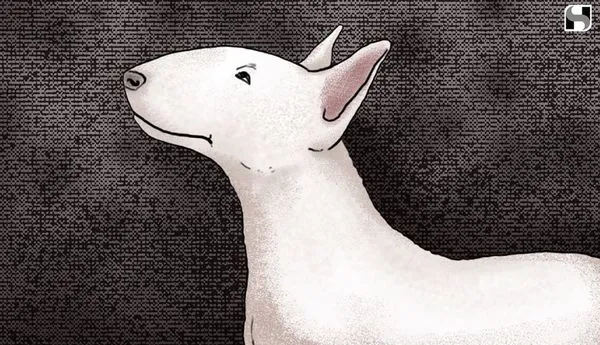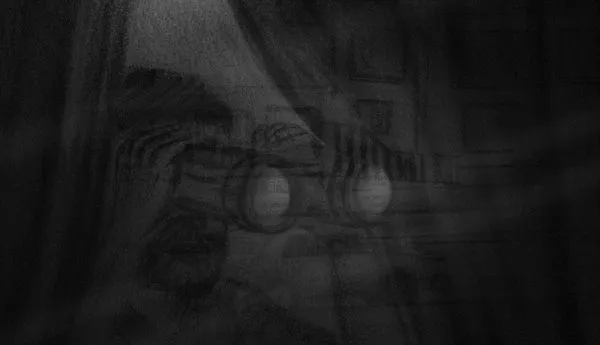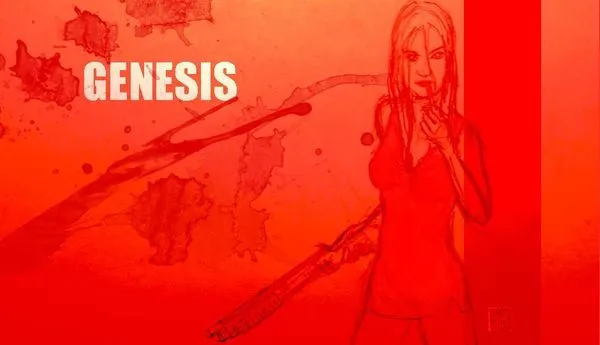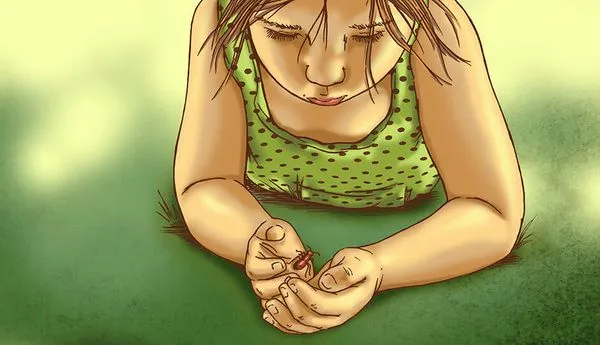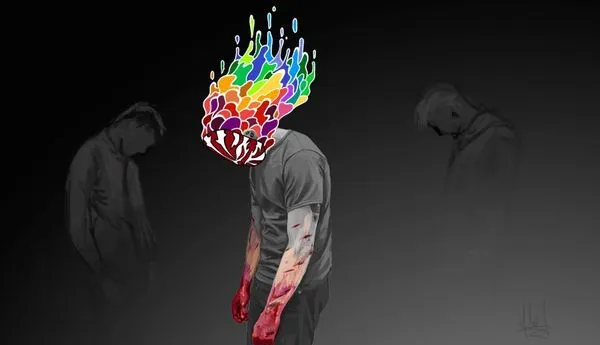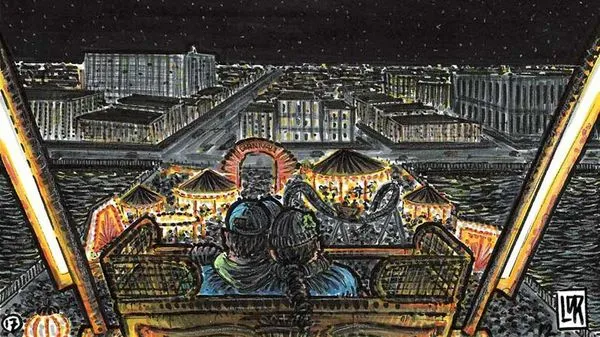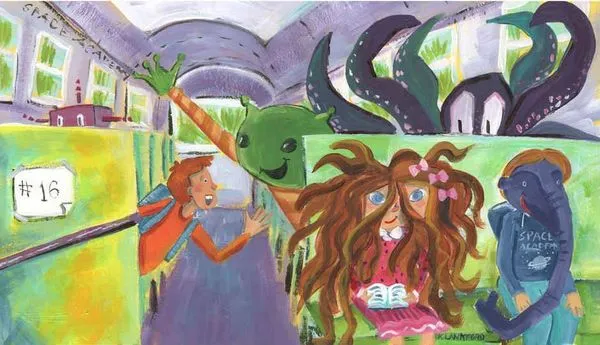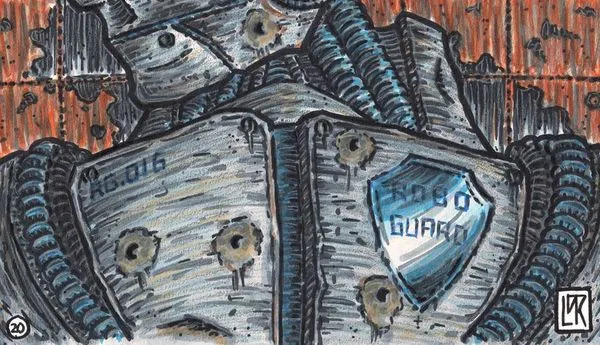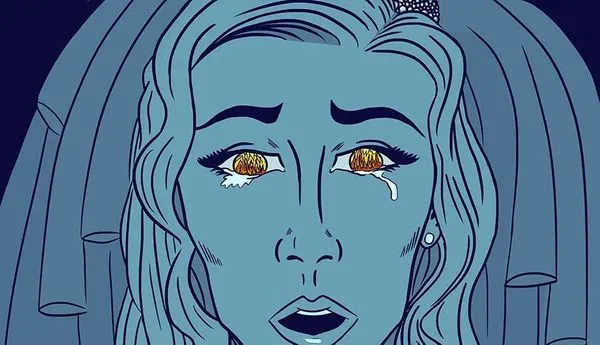Paper Cut Girl
Shirley Golden | Péter János Novák
Published on 2013-03-19
She can’t remember when it started. She leans forward in the wooden chair, shuts out the drone of Ms Fells. She folds the page in her lap, runs her finger and thumb along the crease. Flatten it. Fold it up, hide it. She stares down at the notepad, paper-soft and harmless. She rips, runs an edge down the side of her hand, watches the skin split as if slicing a tomato. She smiles.
“Did I say something amusing, Louise?”
“No, Ms Fells.” She keeps her hands hidden and tries to pay attention. It’s hard to get excited about the value of x or y.
From the corner of her eye, she sees Julie smirk. Big, brash Julie, who thought pulling Louise’s hair was an Olympic sport. She used to steal her lunch money because she knew Louise would never tell. Until the compass incident. Louise stabbed the point into the back of her own hand, and told Julie she’d stab the compass in her own head if Julie touched her hair again. Julie stared at Louise’s skewered hand and forced out a laugh. She called her a crazy bitch but kept her distance after that.
Now she limits her taunts to a smirk, and a look which tries to say, ‘I know all about you and can get to you whenever I want’; but she doesn’t and she can’t. It’s bravado, pretence. Big, brash Julie could never understand. Big, brash Julie who’s dropped off at the school gates in the big, black, shiny car, and only after her parents have secured a goodbye kiss from their daughter.
When did the need for pain begin? Was it when her dad disappeared? No. She can’t remember him. She was five when he left, nine years ago. Her mum said he was big and dumb but smiles as she says it. Did it start with the first new bloke? She doesn’t think so. But her memory is patchy — always has been, like layers of papier-mâché, thinly glued together.
The bell rings, she scrapes back her chair, and her paper weapon flutters to the floor; the stained edges are trampled in the rush to get out.
#
It only happens on rare occasions at the weekend, usually Saturday nights. Footsteps, like an irregular heartbeat. The shadow hesitates in her bedroom doorway, and Louise pretends to be asleep — sometimes that works. She’s believed it’s her fault forever and she takes it without complaint because it never lasts long. Besides, tears and apologies follow, and in the morning she’ll be served the best breakfast.
Her mum’s so small and Dan’s so big. They’ve been dating on and off for months. Whenever his name is mentioned, her mum giggles like the girls in the year beneath Louise at school.
Her mum paints her face and douses her neck in musk. “You stay in the house, Louise. I won’t be too long — we’ll probably come back here tonight, anyway.” Her face animates at this thought, her voice rises, becomes breathless. “There’s orange Club biscuits in the cupboard if you’re hungry.”
Orange Club biscuits — used to be her favourite. Her mother doesn’t know she’s gone off them. She rips off the wrapping and crumbles the contents in the back yard. The neighbours have complained they’ve seen rats. Louise likes the idea of rodents over-running this house.
Dan rarely comes back, so mostly she’s left to her own devices. Sometimes she plays the films she’s not supposed to watch. Sometimes she paints her nails the colour of blood and tries to walk in her mum’s high heels. Sometimes she sits on the edge of her bed and listens to Lady Ga Ga. She digs the corners of CD cases into her leg. But plastic gouges are more obvious, and it hurts more and is less satisfying.
She fetches the unpaid bills from the kitchen and draws them out of their envelopes and heads back to her room. She slits an ‘L’ into her leg. ‘O’ will be more difficult. She hates her name and it feels fitting to deface her skin with it. She doesn’t wipe away the fine lines of blood but lets them set; she watches the wonky letters congeal. Life would be better if she was a Natasha or Michela, exotic and beautiful names to elevate her into something other. She’s a sheet of paper for scribbling notes, not for writing out your homework in neat.
By the time the scabs have formed, the front door slams. She tucks her legs under the covers and switches off the bedside lamp. She listens for footsteps. Perhaps there’ll be voices and Dan will be with her. But there are no soft words or muffled laughter tonight. Footsteps, heavy on each step, get louder. She tears as easily as paper. Paper, paper — why can’t it be strong?
Her mum’s voice slurs as she stands in the bedroom doorway. She tells Louise to get up, says she has to talk. Says Dan dumped her because of baggage. Louise says nothing; she never says anything. Her mum shoves her, hard. When she crashes into the cupboard, dislocating the hinges and her shoulder, her mum starts to cry.
Louise equals baggage; x plus y equals two plus an unwanted one.
#
The scrambled eggs on toast wait in front of her. Louise flinches when her mum reaches across for the salt.
Louise smothers the food in tomato sauce and scoops up the egg onto her fork. Got to keep quiet, act normal.
Her mum is on the chair opposite and watches her. “What are the marks on your thigh, Louise?” she says, as if she just remembers seeing them.
“An old scar,” Louise says.
Her mum looks down and frowns. “It didn’t look like that…”
“It’s nothing, OK. Nothing, really.”
“I’m sorry.” Her mum shifts uncomfortably as if perhaps she’s to blame for them too but she won’t be able to remember doing it.
Louise places down her fork and picks up the knife. She feels along the edge. It’s blunt but the tip is sharp. She stares at her mum. She’s sick of the shame, tears and silence.
“Louise? What’s wrong?”
Louise angles the knife in front of her, watches the point rotate.
Her mum half-stands.
Louise stabs the end through the back of her hand, ignoring the pain in her shoulder. She won’t allow herself to make a sound; she can’t break the old habit of holding it in.
“Oh, my God.” Her mum’s hand flies to her mouth.
Louise takes a breath and speaks so her voice doesn’t waver. “I need to clear up this mess,” she says.
“Oh my God.” Her mum repeats and fumbles for the phone. “Don’t pull the knife out.” She starts to dial.
In a far off way, Louise hears her mum saying there’s been an accident and she spells out their address. She hangs up and tries unsuccessfully to mop up the blood. “Why, why?” She says as if this is unexpected.
How to tell her mum she refuses to keep silent anymore? How to explain she doesn’t feel paper thin anymore? But composed of tough flesh and bone, and thick, brash blood.
When the ambulance arrives, she’ll get them to check her shoulder, too.

